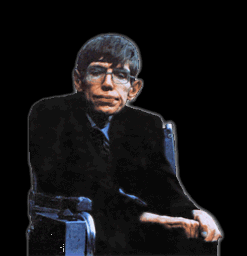| Colonies in space may be only hope, says Hawking | 2001-10-16 13:01 6 comments |
 by Flemming Funch by Flemming FunchTHE human race is likely to be wiped out by a doomsday virus before the Millennium is out, unless we set up colonies in space, Prof Stephen Hawking warns today. In an interview with The Telegraph, Prof Hawking, the world's best known cosmologist, says that biology, rather than physics, presents the biggest challenge to human survival. "Although September 11 was horrible, it didn't threaten the survival of the human race, like nuclear weapons do," said the Cambridge University scientist. "In the long term, I am more worried about biology. Nuclear weapons need large facilities, but genetic engineering can be done in a small lab. You can't regulate every lab in the world. The danger is that either by accident or design, we create a virus that destroys us. "I don't think the human race will survive the next thousand years, unless we spread into space. There are too many accidents that can befall life on a single planet. But I'm an optimist. We will reach out to the stars." Current theories suggest that space travel will be tedious, using spaceships travelling slower than light. But Prof Hawking, Lucasian professor of mathematics at Cambridge, says that a warp drive, of the kind seen in Star Trek, cannot be ruled out. This method of space exploration and colonisation, apparently the stuff of science fiction, could be one possible escape from the human predicament. Prof Hawking believes that genetic engineering could be used to "improve" human beings to meet the challenges of long duration space travel. Cyborgs, humans with computers linked to their brains, will be needed to prevent intelligent computers taking over. "I think humans will have to learn to live in space," he said. The Universe in a Nutshell, Prof Hawking's long-awaited follow-up to the 1988 bestseller A Brief History of Time, is being serialised in the Daily Telegraph, starting tomorrow. [link] (By Roger Highfield, Science Editor, Telegraph Group. © Copyright of Telegraph Group Limited 2001. ) |